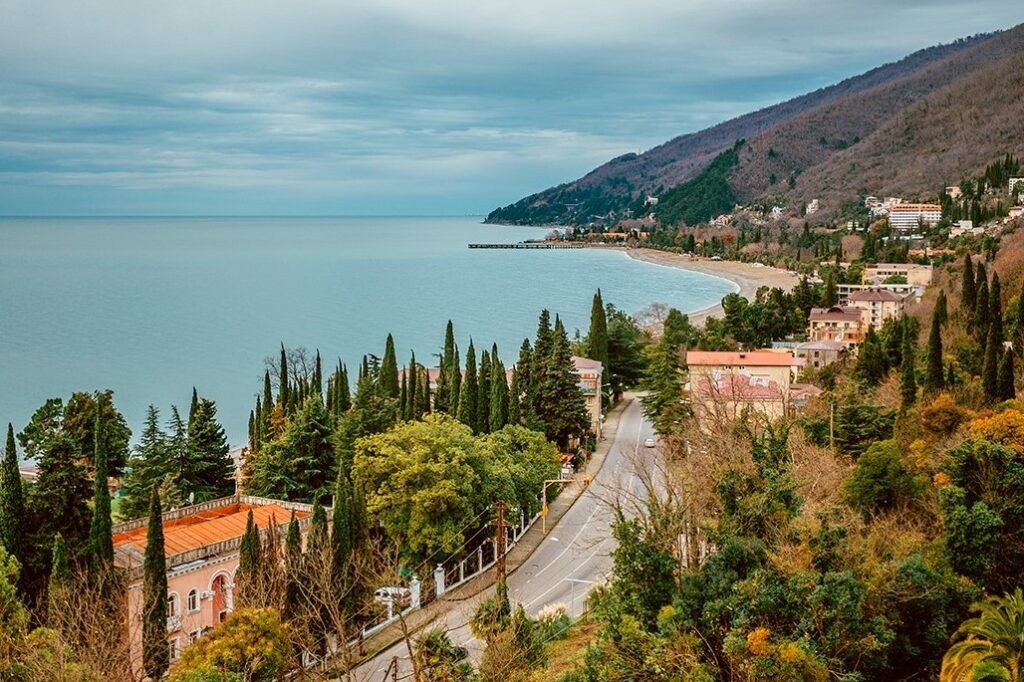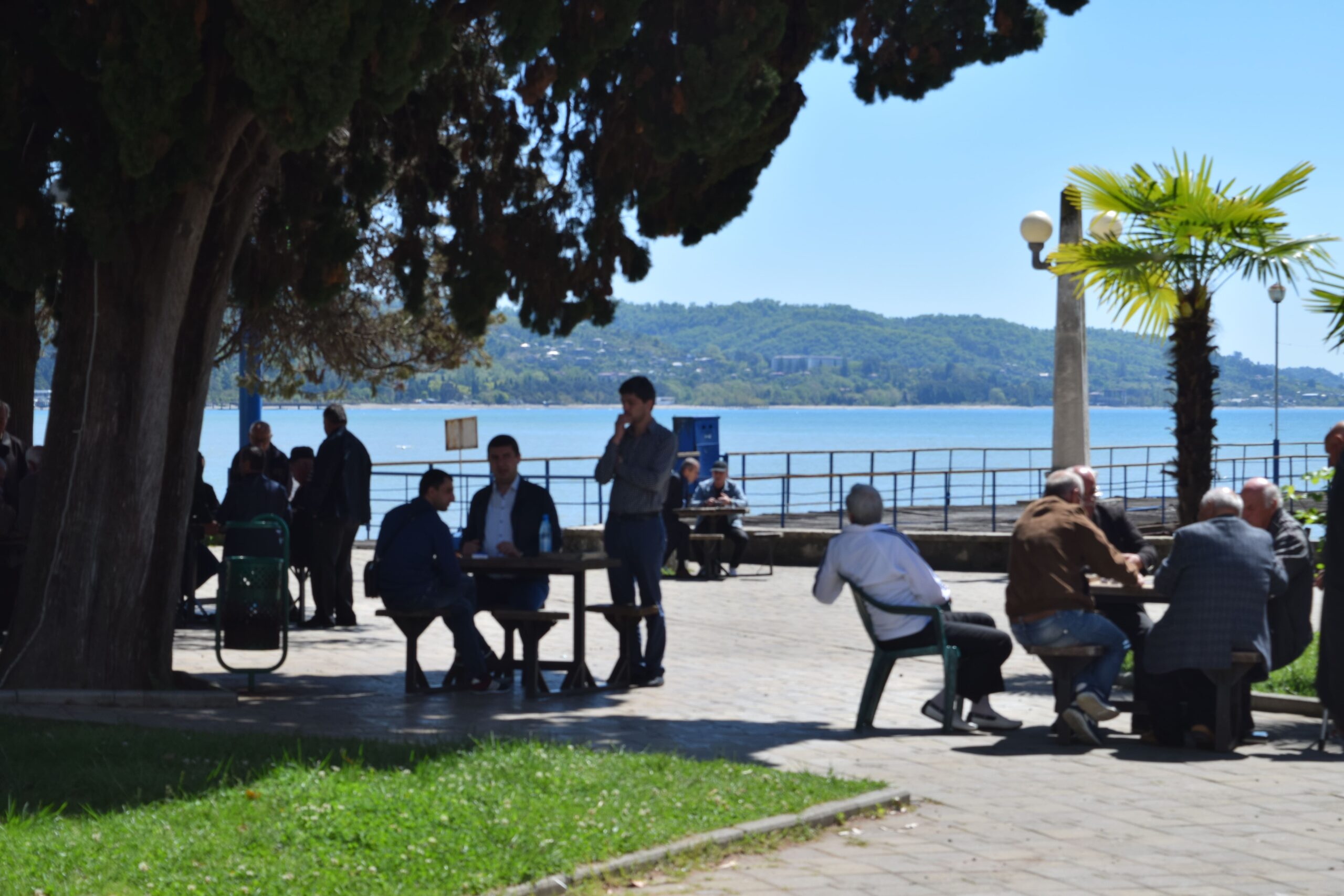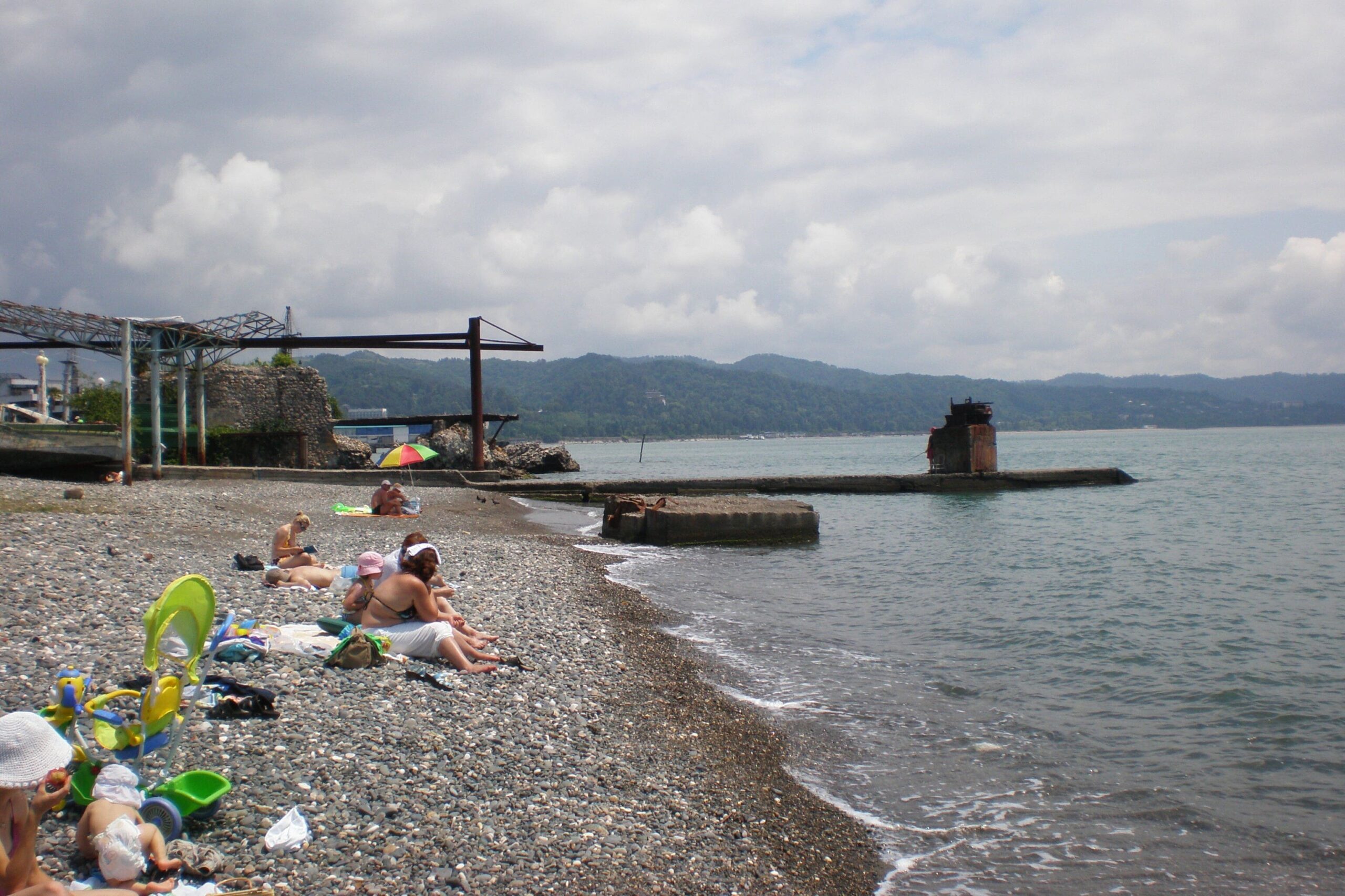
Abkhazian authorities are readying to welcome up to one-and-a-half million tourists over the summer. Meanwhile, some residents worry that the tourist influx might overwhelm an already fraying legal and physical infrastructure.
Alias Ubiria is the owner of a small guest house by the sea and receives guests from Russia almost all year round. According to Alias, most of his income is from repeat customers. ‘Those who have stayed with us once continue to come back. Clients become friends. Then we go to visit them in the winter, to look at the snow’, Ubiria told OC Media.
But this year, many lower-income tourists can no longer afford a vacation at sea. ‘Usually, at this time, we had all the summer months scheduled. Only August is currently booked’, he said. ‘The private [individually-owned tourism] sector is no longer as popular as it used to be. Our customers are mostly at home.’
In large hotels, meanwhile, the situation is the opposite. All over Abkhazia hotels are being booked not only for the spring, but also for the summer, and even early fall. ‘I cannot name the numbers and percentages, but compared to last year, the figures are much higher’, Guild of Hoteliers Chair Astamur Akhba told OC Media.
Overloaded
Abkhazia is expecting up to one and a half million tourists in the summer of 2021, Minister of Tourism of Abkhazia Teimuraz Khishba recently announced, especially since millions of Russian tourists, many of whom would head to destinations further abroad now have much more limited options.
‘The borders are closed, but Russians are used to vacationing by the sea in the summer. Sochi and Crimea simply cannot withstand such a flow of tourists, but there is Abkhazia, and we must actively present and advertise ourselves as a destination’, Khishba said.

Trying to increase its attractiveness on the eve of the tourist season, Abkhazia has banned police from stopping cars with Russian license plates without cause, in order to give Russian visitors ‘the opportunity to peacefully drive around the territory of the republic and visit its sights.”
Abkhazian authorities also hope to attract tourists by way of mention in the Russian media, and as such have organised a tourist forum in Abkhazia for Russian tour operators and journalists.
But some in the hospitality business point out that such government measures can cause more harm than good. ‘As soon as the name of our hotel appears on TV or in articles, in a couple of days a tax inspector or a government employee comes to us to check whether everything is in order with our fire safety, asking that we pay them [a bribe]’, the owner of a 30-room hotel in Gagra, who did not wish to be identified, told OC Media.
Anna Kalyagina, President of the Tourism Union of Abkhazia, has expressed doubts that the power grid can withstand the expected volume of electricity consumption. ‘Today, in a relatively warm period, there are blackouts every three hours. Who will give us a guarantee that the lights will be on regularly in the summer?” Kalyagina told OC Media.
Most hotels have diesel generators and multi-tonne water tanks, which provide electricity autonomously, but this is not a way out of the situation, Kalyagina emphasised.
‘Officials tell us: stock up on diesel fuel and water. We are stocking up, but the state also has to do something for us. It is the state that should provide us with [good] conditions in which to work. Our concern is to attract tourists, earn money and replenish the treasury with taxes’, she said.
Tourism in a pandemic
Abkhazian authorities have worked hard to ensure that despite the ongoing pandemic, Russian tourists will have as few impediments to their visit as possible. They have also tried to reassure the residents of Abkhazia that such a course would not worsen the epidemiological situation.
Responding to a Russian government decree that stipulates that all Russians returning from overseas trips must undergo PCR testing from 15 April, the press service of the government of Abkhazia announced that the measure does not apply to Russian tourists travelling to Abkhazia.

Meanwhile, Minister of Tourism of Abkhazia Teimuraz Khishba has tried to assure Abkhazians that tourists will not lead to another wave of COVID-19. ‘Look at the statistics: the majority of cases were in Sukhum, while Gagra, the most populous resort with tourists, showed the lowest incidence rates. This suggests that tourists are not a source of infection’, he said.
Alias Ubiria agrees with the Minister of Tourism. Ubiria’s family became ill with the coronavirus after the end of last year’s tourist season, even though they had received guests all summer long.
‘Tourists keep apart. They have their own rooms, their own kitchen’, Ubiria said. So long as you don’t hug and kiss them, then you don’t have much to fear. Besides, by the summer we will probably all be vaccinated.’
Vaccinations in Abkhazia have been delayed three times to date. Initially, residents of Abkhazia were scheduled to receive their first jabs in January, but that got pushed back to February and then to the beginning of March. It still hasn’t started.
The primary geographic terms used in this article are those of the author’s. For ease of reading, we choose not to use qualifiers such as ‘de facto’, ‘unrecognised’, or ‘partially recognised’ when discussing institutions or political positions within Abkhazia, Nagorno-Karabakh, and South Ossetia. This does not imply a position on their status.








